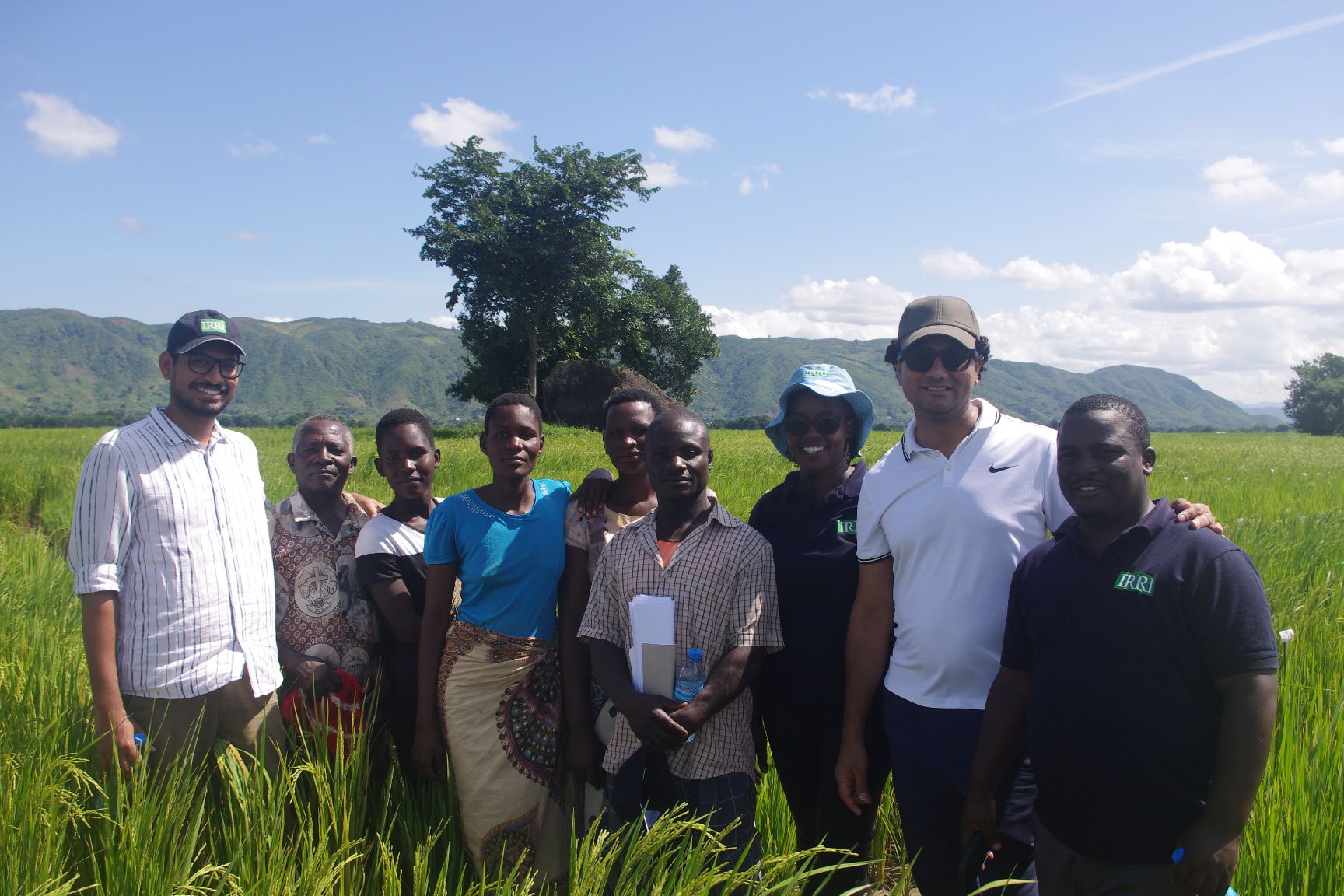Rice crop tour highlights breeding and seed systems in Tanzania

The International Rice Research Institute (IRRI) and the Tanzanian Agricultural Research Institute (TARI) recently embarked on an extensive crop tour across Tanzania, spanning the Eastern and Southern regions from 9-14 May 2023.
With the aim of revolutionizing rice production and enhancing seed quality, the team of researchers, experts, and farmer groups took on a one-week journey to evaluate the different on-farm trial sites of IRRI, TARI centers, and local stakeholders.
Rice cultivation occupies over 1 million hectares in Tanzania producing 2.2 million tons, establishing rice as Tanzania's second-most important crop, next to maize. Recognizing the significance of this staple crop, the recently concluded crop tour proved instrumental by providing valuable insights into rice breeding, seed systems, and the challenges faced by farmers in Tanzania. The collaboration between IRRI, TARI, and local stakeholders will play a crucial role in improving rice production, seed quality, and the livelihoods of smallholder farmers in the country.

During the visit to TARI Uyole, the team engaged in discussions with Dr. Dennis Tippe, the Director of the TARI Zonal office. Tippe highlighted the research projects, activities, and challenges and provided insights into the potential of the center’s current projects.
“The tour is important as we were able to share our views, our plans, and our focus in the coming years. During the tour, we came to the conclusion that we have a lot of potential and we have a lot of chances to progress and make our rice program advance and make some impact on the farmers' community,” he said.
The team then proceeded to Kyela District, where they visited one of the 20 on-farm trials under the rainfed ecosystem conducted in collaboration with TARI Uyole. These trials aimed to assess the performance of recently released varieties and potential lines from the IRRI and TARI breeding pipelines.
Additionally, the team met with the "Songambele" farmer groups, including women-led groups actively engaged in seed system activities, to strengthen collaboration and raise awareness about the benefits of improved rice varieties.
Salehe Ngaunama Muholileli, a rice farmer at Komtonga Village, Sungai Ward in Morogoro region believed that the crop tour enabled farmers like him to see which rice varieties are more beneficial for the type of farmland that they have. He said that he’s interested to learn more about how to plant varieties that will give farmers like him more yield.
Meanwhile, Francis Augustino Shabani, an agricultural extension officer from Morogoro region shared that activities like this help them learn more about the technologies and in turn communicate them with the communities that they work with.

The crop tour also included visits to the on-site farm trials at the Mbarali District to meet with Nafaka Kilimo, a local non-government organization implementing the training of farmers in QDS (Quality Declared Seed). This partnership, under the CGIAR and IRRI Seed Equal Initiative, focuses on providing farmers with affordable access to top-quality seeds, empowering them to embrace improved rice varieties.
Throughout the tour, the team observed on-farm trials in both rainfed and irrigated ecologies, identifying areas for improvement and challenges faced by farmers. In some cases, poor seed quality or limited access to good-quality seeds resulted in mixtures in trial sites and neighboring farmers' fields.
The crop tour team also gathered feedback from farmers on their preferred rice varieties. The SUPA variety was widely favored due to its high market demand, long, bold grain size, and aroma. However, farmers expressed the need for improvements in the average yield for this variety.
Ibrahim Kusekwa Paul, an agronomist at TARI (Tanzania Agricultural Research Institute) based at Dakawa sub-center noted that among the benefits of the crop tour is learning from other researchers about their current activities and what they could also apply or adopt in their current work.
The tour revealed the enormous potential for rice production in Tanzania, coupled with the challenges of low yields, outdated varieties, poor seed quality, and limited mechanization.
To address these issues, the crop tour team recommended several short-term and medium-to-long-term measures like focusing activities in regions with the potential for quick gains, enhancing testing sites, promoting mechanization for direct seeding, mapping QDS producers, improving agronomic practices, as well as establishing centers of excellence in mechanization and seed production.